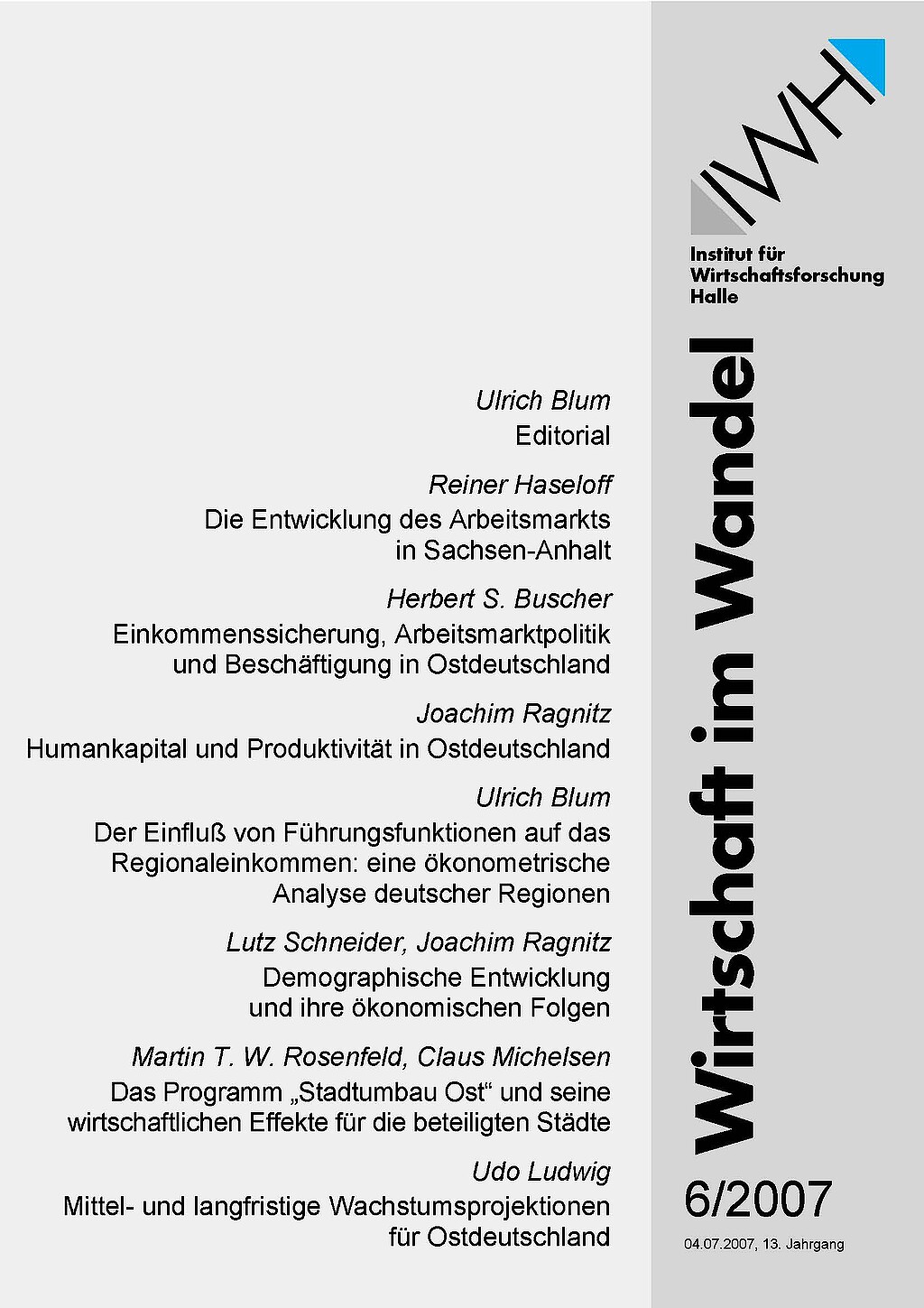
Demographic development and its economic consequences
Ostdeutschland wird in den nächsten Dekaden weiterhin starken demographischen Verwerfungen ausgesetzt sein. Neben der Schrumpfung wird die Alterung der Bevölkerung und des Erwerbspotentials zunehmenden Einfluß auf die wirtschaftliche Entwicklung der Neuen Länder ausüben. Von primärem Interesse ist dabei die Frage, ob sich aus der Verschiebung der Altersstruktur der Erwerbstätigen Herausforderungen für Wachstum, Innovation und strukturellen Wandel ergeben. Das IWH hat sich dieser in der Forschungsliteratur bisher wenig thematisierten Problemstellung angenommen und die wirtschaftlichen Folgen des Älterwerdens des Erwerbspotentials mittels ausgesuchter Verfahren und Datensätze empirisch bewertet. Der erste zentrale Themenkomplex umfaßt die Produktivitätseffekte der Alterung. Auf der Grundlage zweier voneinander unabhängiger Untersuchungsverfahren kann geschlußfolgert werden, daß das fortgeschrittene Alter einen dämpfenden Einfluß auf die Produktivität ausübt. Durch höheres Erfahrungswissen kann die Verringerung der Leistungsfähigkeit allerdings in Teilen kompensiert werden. Zweitens wurde die Wirkung des Alters auf die Innovationsfähigkeit analysiert. Auch hier zeigen sich signifikante Einflüsse des Alters. Die Beschäftigten im Alter von ca. 40 Jahren erweisen sich als die innovativste Altersgruppe. Die Untersuchung zeigt, daß gerade auch die technischen Fachkräfte diesem Alterseffekt unterliegen. Eine dritte Arbeit verdeutlicht die negativen Folgen der Alterung für das Potential an Gründern bzw. Unternehmensnachfolgern. Unabhängig vom sich ohnehin verschärfenden Problem des Fachkräftemangels dürften damit auch von der Alterung des Erwerbspotentials dämpfende Einflüsse auf Wachstum, Innovation und Strukturwandel ausgehen. Obwohl die politischen Gestaltungsspielräume angesichts der weitgehend feststehenden demographischen Entwicklung gering sind, können geeignete wirtschafts-, bildungs- und familienpolitische Maßnahmen die identifizierten Alterseffekte zumindest mindern helfen.




